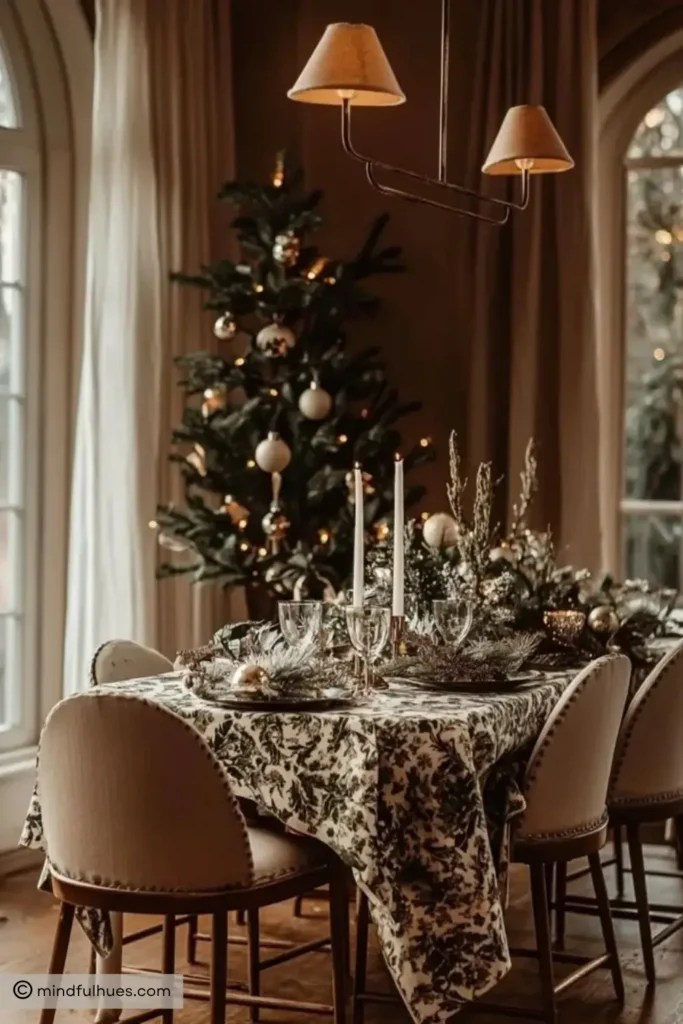The vibe is winding down. The playlist is on its third loop. Someone’s still telling a story in the kitchen, but your brain is already under a blanket, halfway into pajamas. Your social battery? Blinking red.
And yet… people are still here.
Still talking.
Still vibing.
Still not looking like they’re going anywhere anytime soon.
Whether you’re the host trying to gently land the plane, or a guest ready to make your exit without launching a 15-minute goodbye tour, here’s the truth: ending the night can be surprisingly awkward.
Especially for introverts.
We’re not trying to be rude. We just don’t thrive on extended small talk, and we’re definitely not energized by having to explain why we’re tired (again) or why we’re leaving before things fizzle completely.
So we stay. Too long. We second-guess. We ghost.
Or we leave with guilt instead of grace.
But what if it didn’t have to be that way?
What if there was a way to end the night – as a guest or a host – that felt natural, respectful, and also aligned with who you are?
Well; There is. And it’s not about disappearing into the night without a trace (unless that’s your thing). It’s about learning how to close the social loop in a way that protects your energy and honors the connection.
Let’s talk about the subtle art of saying, “That’s enough for me,” without making it weird.
What Is the Irish Goodbye?
Let’s get clear on what we’re actually talking about.
The “Irish Goodbye” is the act of leaving a social event quietly, without announcing your departure or making rounds of drawn-out goodbyes. One minute you’re there; the next, you’ve disappeared into the night, no drama, no fuss.

🏡: Kate P
Despite the name, it’s not really about Irish culture. The phrase has murky origins, and like many sayings from decades past, it’s not without its complications. But in today’s context, most people use it to describe an uncomplicated, low-energy exit from a social setting.
And while some still see it as impolite, many introverts and socially fatigued folks know the truth: It’s not about being rude – it’s about self-preservation.
Sometimes, saying goodbye to multiple people feels like emotional labor. Sometimes, the moment has passed, and stretching it out feels forced. And sometimes, you just want to slip away gracefully without disrupting the vibe or turning your exit into an event.
The Irish Goodbye isn’t about avoidance – it’s about honoring your limits without apologizing for them.
And when done thoughtfully? It can be a beautifully respectful way to leave, both for yourself and for the people around you.
Why Goodbyes Feel So Awkward for Introverts
For many introverts, goodbyes aren’t just a quick wave and a “see you later.” They can feel… loaded.
Because saying goodbye often comes with:
- A string of mini-conversations you didn’t ask for
- The pressure to explain why you’re leaving (“Already?” “But we just opened wine!”)
- A subtle sense of guilt, like you’re ending the fun for everyone else

Image: H&M Home
It’s not that introverts don’t value connection; we do, deeply. But by the end of a social event, we’re often operating with a near-empty tank. The idea of extending the night with a long exit ritual? It can feel like more effort than the event itself.
There’s also the unspoken social script:
You say goodbye to every person. You linger. You make sure they feel okay about you leaving. And if you’re the host? You might feel obligated to keep everyone happy until the last glass is rinsed.
It’s a lot of emotional lifting; and that’s exactly why many introverts either:
- Ghost quietly (and feel bad about it), or
- Stay longer than we want to (and feel resentful or overstimulated)
But here’s the good news:
There’s a middle ground.
With a little planning, you can end the evening – whether you’re hosting or attending – in a way that’s respectful, authentic, and most importantly, aligned with your own needs.
Let’s get into how.
Hosting? Here’s How to Wind Down Gracefully
Tips for introverts who want to cue a gentle ending without the awkwardness.
Hosting as an introvert can already take a lot of energy – so when the evening is winding down and you’re ready to land the plane, the last thing you want is to feel stuck playing cruise director until midnight.
The good news? You don’t need to make a big announcement or force a dramatic send-off. A few subtle cues can go a long way in signaling to guests that the night is wrapping up; without anyone feeling rushed or pushed out the door.

Image: mcgeeandco
A. Subtle Signals to Cue the Close
These are gentle, non-verbal (and verbal) ways to shift the energy of the evening:
- Dim the lights slightly or change the music
Shift from upbeat to softer, slower music. Lighting and sound can guide the mood without a word. - Start clearing a few dishes
It’s a non-verbal cue that the evening is transitioning. Not a full clean-up – just enough to shift the tone. - Offer one last round
Try something like: “I’m about to pour a final round of tea if anyone wants some before heading out.”
It signals closure while still being warm and hospitable. - Casually mention your morning or evening routine
Something as simple as: “I’ve got an early one tomorrow, so I’m going to start winding down in a bit.”
It’s honest, low-pressure, and sets a gentle boundary. - Move the conversation toward the door
If people are lingering, start chatting near the entryway or grab coats casually while wrapping up stories.
These small shifts help people feel the natural conclusion of the evening – without making anyone feel like they’ve overstayed.
And the best part: this approach helps you, the host, stay in control of your energy and space without guilt or second-guessing.

Image: maisonmargauxltd.
B. Use Clear But Kind Language
Sometimes subtle cues aren’t quite enough – and that’s okay. You can still be direct without being abrupt or apologetic.
When you speak with warmth and clarity, people respond well. In fact, most guests appreciate being gently released from the “Should we leave now?” limbo.
Here are a few kind but clear ways to wrap things up:
- “This has been such a cozy night – thank you all for coming.”
A soft close that sets the tone for goodbye without needing to explain anything else. - “I’m going to start winding down, but I’m so glad we got to do this.”
Honest, gracious, and signals the shift without awkwardness. - “I’ve loved having you all here. Let’s wrap up and call it a lovely night.”
Confident but kind – and it makes people feel like the evening had a natural arc. - “I know it’s getting late, and I’ve got an early morning, so I’m going to start tidying up and winding down.”
Especially helpful when guests might be lingering – it gently sets the boundary without tension.
These kinds of phrases help you lead the end of the evening with grace – no fake yawning or waiting for someone else to leave first. You’re simply giving your guests a gentle, generous cue that the night is coming to a close.
And here’s the truth: you don’t owe anyone endless access to your energy, even if you invited them in.

Image: Farrow & Ball
C. Prep the Exit Early
One of the simplest ways to make the end of the night feel smooth is to plan for it before the night even begins.
Setting gentle boundaries upfront takes the pressure off when it’s time to wrap things up – both for you and your guests. You’re not cutting things short; you’re just honoring what you already communicated.
Try these low-key, respectful ways to set the tone early:
- Include a start and end time in your invite
Example: “Come by 6–9 PM for a cozy evening in!”
It helps guests understand the flow and avoids those lingering “maybe I should stay?” moments. - Mention that you love early nights
Something like: “We’re keeping it casual and early. I’m all about winding down by 9.”
It normalizes your rhythm before people arrive and shows you value your own energy. - Frame it around self-care or simplicity
Example: “Trying to protect my Sundays, so aiming for a shorter hangout.”
Most people will respect that (and some will probably thank you for it).
These small cues upfront create structure – and that structure gives you permission to enjoy your night without dreading the moment when you have to “kick people out.”
Boundaries aren’t buzzkills. They’re invitations to connection that respects everyone’s energy – including your own.

🏡: dark_revelry
Guest? Here’s How to Leave Without the Spotlight
Subtle ways for introverts to exit gatherings with grace – whether or not you say goodbye.
Being the guest who leaves “early” or quietly can stir up a surprising amount of social anxiety — especially when everyone else seems to be going strong. But guess what? You don’t need a dramatic send-off to show respect or gratitude.
You can leave in a way that feels good for you: calm, kind, and completely without fanfare.
A. The Soft Goodbye
Sometimes, the most graceful exits are the ones that barely register.
Here’s how to master the art of a low-key departure:
- Slip out during a natural lull in the conversation
When people are shifting topics, heading to the bathroom, or refilling drinks, that’s your cue. No need to interrupt the flow with a grand goodbye. - Wave subtly to the host – or not at all
A quiet wave, a soft “thank you,” or even just a knowing glance can be enough. Don’t feel pressured to make rounds if it doesn’t feel right. - Send a thoughtful text after you leave
Something simple like:
“Thank you for a lovely evening; everything felt so thoughtful. I really appreciated being there.”
It closes the loop without needing to be present for the final scene.
This kind of exit isn’t cold; it’s self-aware. It honors your energy without demanding more from anyone else.
And chances are, you’re not the only one who feels relieved when someone finally models that it’s okay to go.

📷 and Styling: natasjasadi for Victoria Magazine
B. The Quiet Courtesy
If you do want to say goodbye – but can’t imagine doing a full lap of hugs and handshakes; good news: you don’t have to.
The quiet courtesy is about offering a simple, sincere farewell to the host without the performance.
- Say goodbye only to the host
You don’t owe the entire room a recap. A quick word with the person who invited you is more than enough. - Keep it brief and genuine
Something like:
“I’m going to slip out – thank you so much. It was perfect.”
That’s it. You’ve acknowledged the experience and exited with grace – no lingering necessary. - Avoid apologizing for leaving “early”
There’s no need to explain or over-justify your exit. You’re allowed to honor your limits without a disclaimer.
This version of goodbye is often appreciated more than you think. It’s respectful, warm, and doesn’t draw attention; a win-win for both you and your host.

Image: Pottery Barn
C. Follow Up Later
If you left quietly or didn’t get a moment with the host, a little follow-up goes a long way; and keeps the connection strong.
- Send a quick thank-you text or voice note the next morning
Something like:
“Just wanted to say thank you again for last night; it was such a thoughtful and cozy evening. Grateful to have been there.” - Mention a specific detail you enjoyed
A comment on the food, the playlist, or the conversation makes your message feel warm and personal; even if your exit was quiet.
This kind of follow-up not only smooths over any worry you might’ve had about leaving subtly; it also builds deeper social trust. It shows that even though you didn’t make a big exit, you still valued the moment.
And really, that’s what matters most.

It’s Not About Being Rude; It’s About Being Real
Let’s clear something up once and for all:
Leaving quietly or wrapping things up early isn’t rude. It’s real.
In a culture that sometimes confuses noise with value, it can feel like we’re doing something wrong by stepping away without a performance. But honoring your limits isn’t a flaw – it’s a strength.
- You’re not being cold.
- You’re not being antisocial.
- You’re simply being self-aware – and that benefits everyone in the long run.
Because here’s the truth:
When hosts and guests are clear about their boundaries, the entire social experience becomes more thoughtful, more sustainable, and more respectful.
Your presence doesn’t need a spotlight to have mattered.
It doesn’t need a dramatic exit to feel complete.
Sometimes the most meaningful moments are the quietest ones; and your ability to leave or wind down gently is just another way of showing up as your full, authentic self.
My Advice: Own Your Exit, Own Your Energy
Remember, you get to decide how and when your night ends: no scripts, no guilt, no pressure. So regardless of whether you’re hosting or a guest, just know: practicing the art of a graceful exit is about honoring your energy and respecting your boundaries.
By leaning into subtle cues, kind honesty, and gentle follow-ups, you create space for connections that feel meaningful and manageable.

So go ahead – embrace the quiet power of your Irish Goodbye. Leave on your own terms, knowing you’ve hosted, attended, or exited with grace. Because at the end of the day, the best gatherings aren’t about how loudly you say goodbye – they’re about how genuinely you showed up.
What about you?
Do you have a favorite way to end a night on your own terms?
Share your best exit moves or tips in the comments – I’d love to hear how you gracefully wrap up your gatherings!
P.S. The holiday season definitely comes with its fair share of stress, but my hope is that this series helps fellow introverts enjoy gatherings without the overwhelm. And if you’re hosting your first dinner this year, you’ll love these tips for hosting – plus, I’ve got even more support waiting in the Introvert’s Guide to Hosting Without Burnout to help you make it through with ease and joy.
Leave a Reply